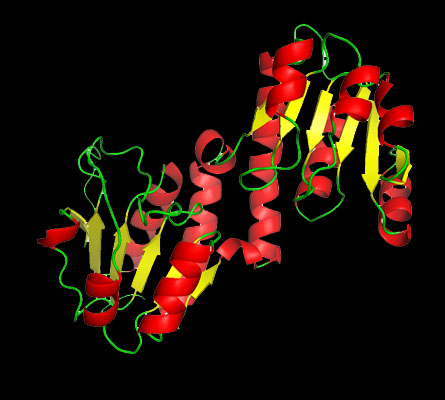A new stage for volunteer computing in China
CAS@home, the CAS volunteer computing project was officially put into operation on October 20, 2010, which is the first domestic project of its kind and which marks a new stage of development for the
 |
| protein structure prediction |
The project was officially launched in January 2010 with the participation of CERN scientists. A Berkeley Open Infrastructure for Network Computing server (BOINC) was established at IHEP during the first quarter of 2010. A CAS@home master class with two international experts and over 20 participants was held at IHEP on 9 March 2010. In June, tests began on a volunteer computing project that would distribute Short-Cut Threading, an application about protein structure prediction developed by researchers at the Institute of Computing Technology, CAS. In July and August, researchers from IHEP and CERN collaborated on developing a new volunteer computing application for simulating particle collisions at IHEP's particle accelerator, BEPC.
Volunteer computing is a way to have volunteers around the globe provide their spare PC capability and time for a particular computational task or data analysis. The way provides an efficient solution to tasks that take large-scale computation and computing resources. With 1 billion computers connected to the Internet worldwide, the potential for developing volunteer computing is huge. In 2008, China surpassed the United States in the number of Internet users.
Volunteer computing has educational and societal benefits, as well as computational advantages. This form of direct, web-based involvement in science encourages popular interest in and understanding of science. In the Chinese context, this approach can raise awareness amongst young Chinese of the many interesting and valuable science activities going on in China.
The core objective of the project is to communicate the benefits of volunteer computing to CAS scientists, teaching the essential skills needed to exploit this technology, assisting a few pilot groups in getting projects started, and providing online resources in Chinese for the Chinese research community.
For more detailed information, please click on: http://casathome.ihep.ac.cn/

the figure of registered users
